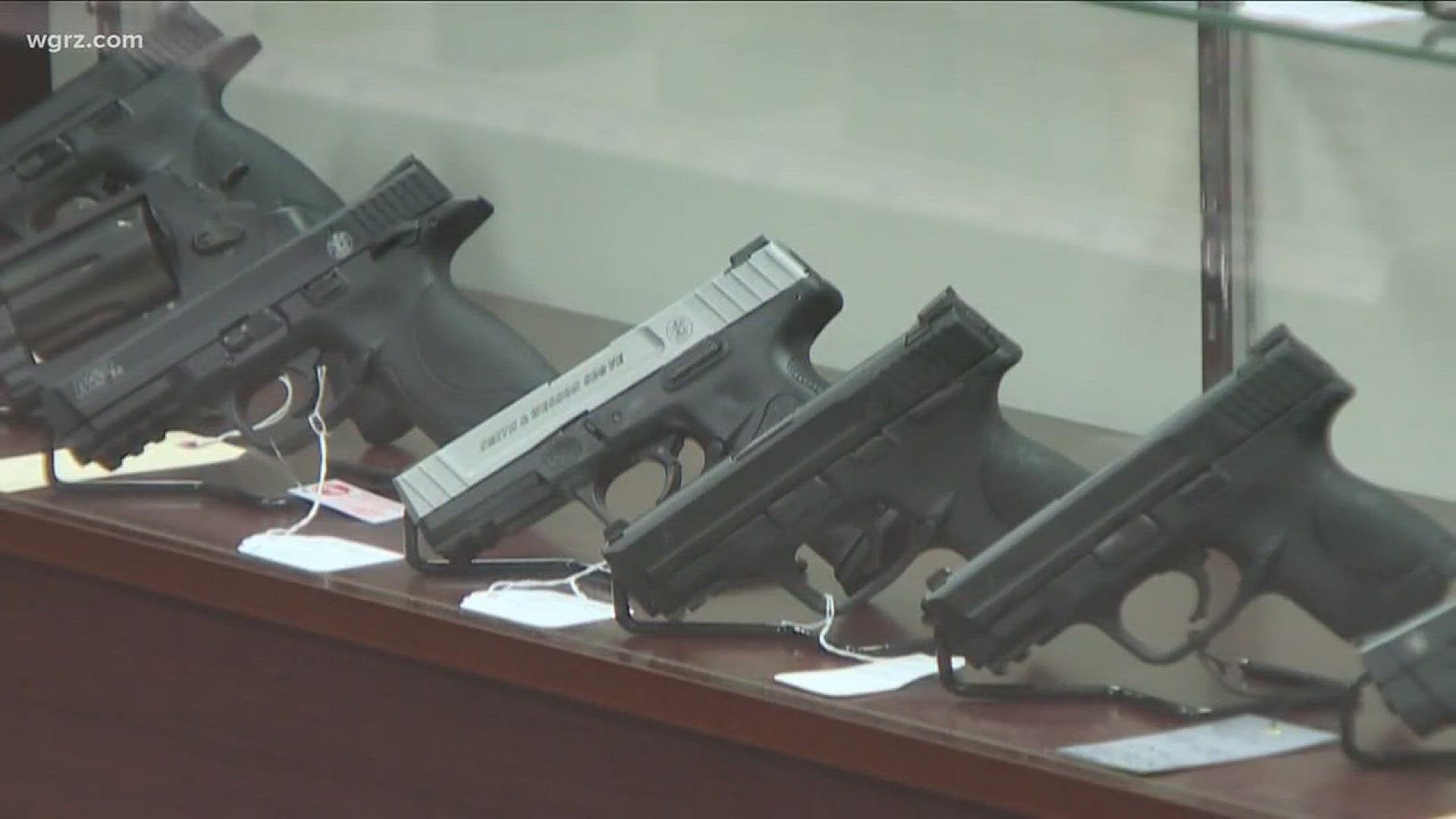BUFFALO, N.Y. — The New York State Assembly overwhelmingly approved a bill this week to authorize "extreme risk protection orders," which courts could apply to risky and dangerous individuals in order to prevent them from owning firearms.
The legislation enjoys some bipartisan support in the Assembly. Republicans Ray Walter (R-Amherst) and Angelo Morinello (R-Niagara Falls) both voted for the bill on Tuesday.
Still, it faces an undetermined future in the Republican-led State Senate, where an identical version of the bill remains stuck in committee.
The proposal is similar to other so-called "red flag" bills circulating in nearly 20 state legislatures across the United States. Here's the idea behind them: If a judge finds probable cause to believe that a person could be harmful to others or themselves, an extreme risk protection order could be issued to ban that person from possessing or buying a gun.
New York already has measures in place to prevent people with severe mental health issues to own firearms, even though the vast majority of people with mental health conditions are not violent.
This particular legislation, however, has a more specific purpose: It aims to keep firearms out of the hands of people who have a documented history of violent or unstable tendencies.
Some conservatives and Second Amendment rights groups have expressed concern over these types of bills, claiming they could violate due process by stripping a firearm from a person who hasn't been convicted of a crime yet.
The language of the bill in New York would entitle a defendant to a hearing within three to six days of a temporary order. At that point, if the judge deems a person still dangerous, a final order can be put into effect to prevent that person from having a gun for at least a year, subject to renewal of the order.
Budd Schroeder, a longtime Second Amendment activist who has belonged to the local "SCOPE" group for more than five decades, said he's not at all opposed to keeping firearms out of the hands of dangerous people. "None of the gun people I know" think risky people should have access to guns, Schroeder said.
"Once an accusation is made, sure, if it seems like there is reasonable belief a person is in danger, then confiscate the guns," he said. "But within a week, it should go before someone who has authority to determine whether or not the charge is justified."
Schroeder said he was comfortable with the fact that New York's bill included a provision for a hearing within three to six days of a temporary protection order.
He still has concerns with these types of proposals in general, though.
"(A person) can lose his constitutional and civil rights just on an accusation," Schroeder said. "And what I believe needs to be done is quick due process."
For example, he pointed to the court case of Montgomery v. Cuomo, a civil suit filed more than four years ago on behalf of an ex-police officer who had his guns taken away after a hospital visit. That case addresses SAFE Act policies.
Mary Travers Murphy, the executive director of the Family Justice Center for domestic violence victims, said any legislation at the state level should consider the victim above all else.
She fully supports the legislation for extreme risk protection orders, noting that access to firearms is a major factor in domestic violence. Under current statewide law, police agencies can't always seize guns, she said.
It depends on the local laws.
"Laws are a little different in some cases. Obviously, state to state and in some cases, municipality to municipality. We need to have something on the books that everybody has to abide by to make it much safer for victims of domestic violence," Murphy said.
In the United States Senate, a bipartisan proposal sponsored by Republican Marco Rubio and Democrat Bill Nelson would encourage states to pass "red flag" bills by offering federal funding.
Only five states have "red flag" laws currently in place: California, Connecticut, Oregon, Indiana and Washington.

